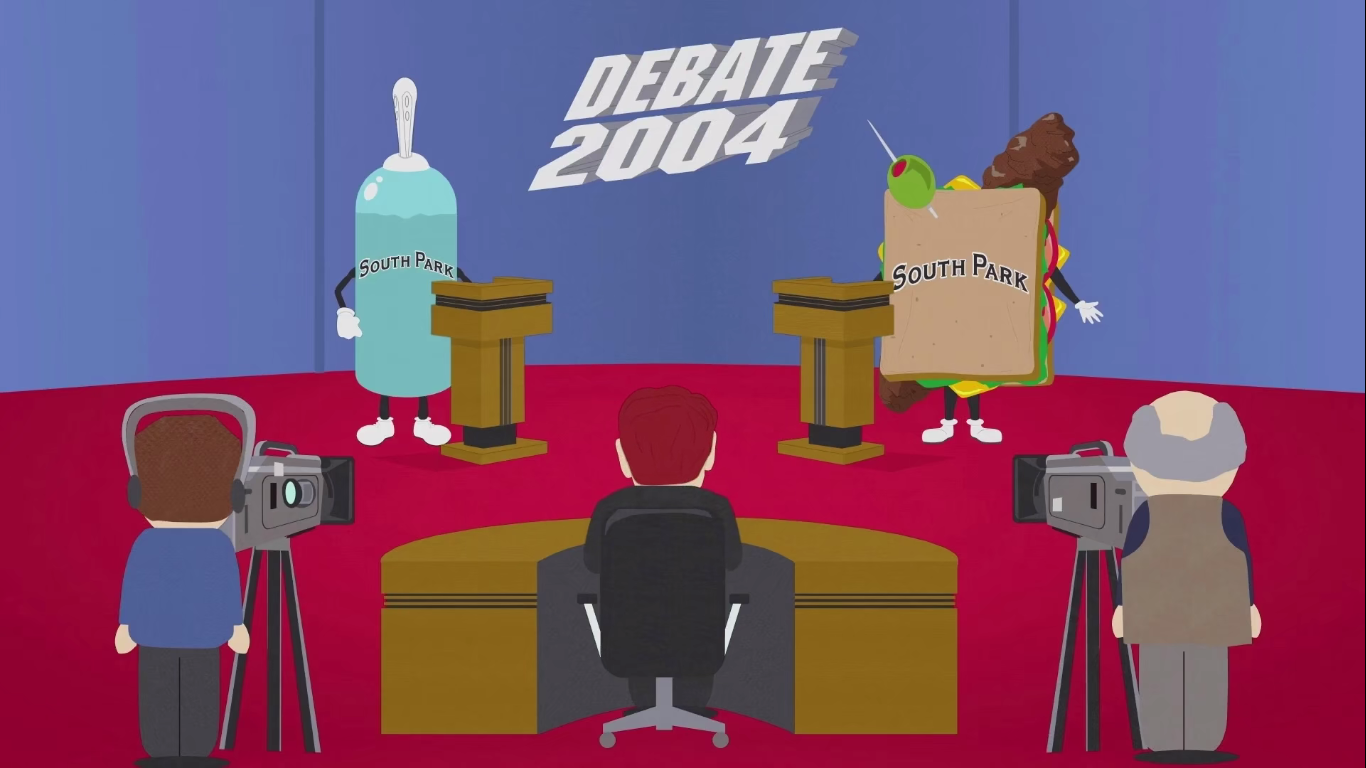
Are we forever condemned to vote for a giant douche or a turd sandwich?
What are elections?
I love South Park. In season 8 episode 8, the children of South Park Elementary School are required to choose a new school mascot. The two candidates for this role are a giant douche and a turd sandwich. Stan doesn’t want to vote because both these candidates are bad candidates in his opinion. However, later in the story he encounters a PETA leader who claims that all elections are in fact between a giant douche and a turd sandwich. To me, this is a figure of speech for saying we always need to choose the lesser evil of the candidates that will be bad. However, I think this claim is false.
Let us start with the beginning. What are elections? Elections are a formal way to make a decision as a group. Depending on the voting system, we can distinguish a question and answer in each election. In most electoral systems, the question is: “Among candidate A, B, C, …, who is the best to represent the citizens?” Consequently, by the act of voting, the citizens will answer this question. Having the best candidate may seem great, but I think this is very misleading. Indeed, having the best candidate in itself does not guarantee to have a good candidate. As long as you are less worse than the other candidates, you have a good chance to win. This is very problematic when you know that the candidates are selected by elites and often favored by bad characteristics (lying, polarizing, corrupt, etc.). Therefore, trying to find the best might rather give us a race to the bottom instead of finding a good representative. We can find empirical evidence for this by the observation that both the 2016 and 2020 USA presidential elections have unpopular candidates.
To approve or not to approve
So it is inevitable to vote for a giant douche or a turd sandwich? Not exactly. It is only true when we look for “the best”. But we could change the question to “who is good to represent the citizen”. How can this be done? Well, when representatives choose good laws, they don’t compare proposal A to proposal B to proposal C to get “the best”. Instead, they will vote whether “A” is better than “not A”. And if “A” gets more votes than “not A”, they assume that this proposal was good and consequently adopt it. You should note that this way, those that make the proposals, have less power, because their proposals are not guaranteed to have one adopted: a proposal with less than a majority will never be adopted, even though it might be “the best“ proposal out there compared to others. This is actually already adopted by many people, as e.g. the media reports about approval rates. Why should we accept any candidate with an approval rate of less than 50%?! Hence, by allowing voters to vote independently for or against each candidate, we would be able to reject all bad candidates and therefore allow us to select a good one.
If nobody gets elected
You might be wondering, but what might happen if nobody gets elected? Well first, I think this will be most unlikely. But secondly, this might be an opportunity to get real change. An election with no elected candidates could be succeeded by a second election in which all candidates with a less than 50% approval rate are disqualified. This would allow new candidates to replace those previous flawed ones and hence give space for outsiders. This comes to me as very reminiscent of combating roadsides festered with nettles. By mowing them, we create space for a more diverse seed bank underneath to shoot through.